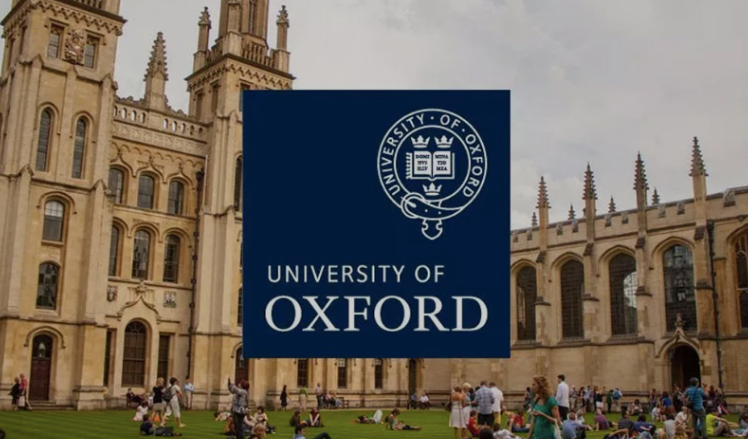- EasyCard
- Trade
- Help
- Announcement
- Academy
- SWIFT Code
- Iban Number
- Referral
- Customer Service
- Blog
- Creator
What conditions need to be met to apply for postgraduate studies in the UK?
If you want to roam in the ocean of academia, applying for postgraduate studies in the UK is an exciting journey! Whether chasing your favorite major or looking forward to studying on an ancient campus, higher education in the UK can provide you with rich choices and unique experiences. However, crossing the “language barrier” and “academic barrier” is not an easy task. Each university has its own set of standards. To smoothly meet these requirements, you need to be fully prepared.

Imagine standing on the campus of Oxford or Cambridge, holding a degree certificate, and being surrounded by classmates from all over the world. This feeling is simply thrilling. For many people, studying abroad is not only an academic challenge but also an opportunity for personal growth. Before embarking on this journey, we need to clarify the basic application conditions.
Academic Requirements
When applying for postgraduate studies in the UK, academic requirements are a crucial link. Generally speaking, most universities require applicants to hold an undergraduate degree and achieve a certain average grade (GPA) during the undergraduate stage. The specific requirements are as follows:
For postgraduate application conditions of UK universities ranked in the top 20:
Undergraduates from key universities need an average score of 80-85 points, and the IELTS score is usually required to be 6.5-7.5.
Undergraduates from ordinary universities need an average score of 85-90 points, and the IELTS score is also 6.5-7.5.
For postgraduate application conditions of UK universities ranked 21-40:
Undergraduates from key universities need an average score of 75-80 points, and the IELTS requirement is 6.0-6.5.
Undergraduates from ordinary universities need an average score of 80-85 points, and the IELTS score is 6.0-6.5.
For three-year college graduates, at least three years of work experience is required, and the average score is about 80 points. The IELTS score also needs to reach 6.0-6.5.
Undergraduate students in school need to provide materials to prove that they can graduate smoothly and obtain a degree. If your undergraduate major does not completely match the applied postgraduate course, relevant work experience or qualification certifications can also add points to your application.
If you are a college student and do not have a qualified IELTS or TOEFL score, it is recommended to take language courses in advance to improve your English level and ensure that you can meet the language requirements of the school.
Application Materials
When preparing application materials, pay attention to the following key points to ensure the completeness and pertinence of the materials:
The personal statement is one of the core materials for applications.
When writing, clearly state the reasons for choosing this major, how your academic background fits in with it, and your future career plans. Avoid using templates. Personalized stories and specific experiences can make your application more attractive. For example, mentioning relevant projects or internships you participated in during the undergraduate stage can show your practical ability and academic interest.
Recommendation letters usually need two to three. It is recommended to choose professors or employers who are familiar with your academic ability to write them.
Ensure that they can elaborate on your advantages in detail and provide specific examples to support. Finally, communicate with recommenders in advance and give them enough time to prepare.
Transcripts and degree certificates are also indispensable parts of the application. Ensure that these documents are certified and translated into English if necessary.
If you are a recent graduate, you also need to provide relevant materials to prove that you can graduate smoothly.
Finally, pay attention to checking the specific requirements of each university, because the application materials for different schools and majors may vary. Ensuring that all materials are prepared before the deadline will significantly increase your chance of a successful application.
Proof of Funds
When applying for postgraduate studies in the UK, proof of funds is a crucial link. Most universities require applicants to provide sufficient economic proof to ensure that they can afford tuition and living expenses during their studies. This is not only the requirement of the school but also an important part of applying for a visa.
Usually, you need to provide a bank deposit certificate showing that the balance in your account at the time of application meets the minimum standard required by the school. The specific amount varies according to the living cost of the city:
Duration of Study
Master’s courses in the UK are generally one-year programs. Many popular majors such as business, media, and education are one-year programs, while some majors such as architecture and engineering majors may have two-year courses.
Study Abroad Expenses
The tuition fees of UK institutions are generally around £20,000 to £35,000 (about RMB 250,000 to 450,000). Generally speaking, the higher the ranking and the more popular the major, the higher the tuition fee.
Business tuition fees are about £30,000 to £35,000.
Media tuition fees are about £20,000 to £25,000.
Education tuition fees are about £20,000.
Science and engineering tuition fees are about £20,000 to £25,000.
Living Expenses
London area: The living expenses and accommodation costs in London are relatively high. The rent for a year is about £20,000 to £50,000. Considering food and other expenses comprehensively, the living expenses in London for a year usually need to be more than £20,000 to £25,000.
Non-London area: In cities like Edinburgh, the rent for a year is about £20,000, and the living expenses start at £18,000. The consumption levels of other cities are similar. Basically, the rent for a year is about £15,000, and the living expenses range from about £15,000 to £20,000.
In conclusion, the prepared funds should at least cover the sum of tuition fees and living expenses. It is recommended to budget for £25,000 for tuition fees plus £20,000 for living expenses, totaling more than about £45,000. Because tuition fees, rents, and prices in the UK are rising every year, reasonable planning of the capital budget is an important step to ensure a smooth study abroad.
In this process, if you need to manage funds flexibly or make cross-border remittances quickly, it is recommended to use the multi-asset wallet BiyaPay. Using BiyaPay, you can enjoy local transfer services in most regions of the world. The handling fee is as low as 0.5%, and the funds can arrive on the same day. It is especially suitable for overseas users who need to make payments in emergencies.
For those users who use digital currency, BiyaPay also supports real-time exchange of digital currency into mainstream legal currencies such as US dollars and pounds, making cross-border remittances and fund management easier and safer.
Visa Process
After obtaining an offer from a UK university, applying for a student visa is a crucial step. The following is the detailed visa application process to help you complete the application smoothly:
Step 1: Online visa application
Create an account and fill out the application form: Visit the official website of the UK Visa and Immigration Bureau, register a new account, and fill out the visa application form according to the prompts. Be sure to use English and check carefully before submitting to avoid errors and omissions.
Pay the visa fee: After filling out the application form, pay the visa application fee and the healthcare surcharge online. After payment, you will receive a confirmation email. Make sure to save this email for future use.
Make an appointment at the visa center: Log in to the visa appointment system, select a visa center that is convenient for you, and make an appointment. Ensure that you select an appropriate date and time to submit materials smoothly.
Step 2: Submit materials and collect biometric information
On the appointed day, arrive at the visa application center 15 minutes in advance and bring the following materials:
Valid passport
Proof of funds showing that you have sufficient funds to support your study and living in the UK
Tuberculosis test certificate (if applicable)
Printed copy of the online application form
Academic materials such as transcripts and degree certificates
Old Biometric Residence Permit (BRP), if available, please submit it as well.
After arriving, you will have your fingerprints and facial photos taken. These information will be used for visa review.
Step 3: Collect the visa
After applying, you can choose to collect the visa in person or use the courier service. Ordinary applications usually take 3 weeks (about 15 working days) for processing, and it may be longer especially during peak periods. If you choose the expedited service, the processing time can be shortened to 3-5 working days, and the 24-hour expedited service can obtain the result within 24 hours after making an appointment.
Mastering these visa application processes will help you prepare for your study abroad journey and ensure that everything goes smoothly.
Applying for postgraduate studies in the UK is not an easy thing, but as long as you are fully prepared and follow each step’s requirements, the chance of success will be greatly increased. From understanding the application conditions to preparing visa materials, every link is crucial. Ensuring that your academic background meets the requirements, your language ability reaches the standard, and planning funds and living expenses in advance will pave the way for your study abroad journey.
*This article is provided for general information purposes and does not constitute legal, tax or other professional advice from BiyaPay or its subsidiaries and its affiliates, and it is not intended as a substitute for obtaining advice from a financial advisor or any other professional.
We make no representations, warranties or warranties, express or implied, as to the accuracy, completeness or timeliness of the contents of this publication.




Contact Us
Company and Team
BiyaPay Products
Customer Services
is a broker-dealer registered with the U.S. Securities and Exchange Commission (SEC) (No.: 802-127417), member of the Financial Industry Regulatory Authority (FINRA) (CRD: 325027), member of the Securities Investor Protection Corporation (SIPC), and regulated by FINRA and SEC.
registered with the US Financial Crimes Enforcement Network (FinCEN), as a Money Services Business (MSB), registration number: 31000218637349, and regulated by FinCEN.
registered as Financial Service Provider (FSP number: FSP1007221) in New Zealand, and is a member of the Financial Dispute Resolution Scheme, a New Zealand independent dispute resolution service provider.


















